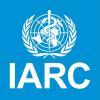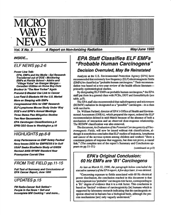UPDATE 3
A new group of IARC advisors is meeting in Lyon this week to set priority agents for the agency to review in 2025-2029. More here.
January 19, 2024
UPDATE 2
IARC has announced that the agency will evaluate the cancer risks of “automotive gasoline and some oxygenated additives” from February 25 to March 4, 2025. The reassesssment of RF radiation will have to wait.
October 25, 2023
UPDATE 1
Other Monograph meetings have now been scheduled for March, June and November 2024. The next possible slot for RF radiation is in early 2025.
December 12, 2022
On November 23, 2002, Elisabete Weiderpass, the Director of the International Agency for Research on Cancer (IARC), revealed that a new assessment of the evidence linking radiofrequency (RF) radiation to cancer would likely take place in early 2024. A formal decision could come within a few months.
Calls for a new IARC evaluation have been mounting for some years following the release of two large animal studies showing elevated tumor counts after lifelong exposure to RF radiation.





